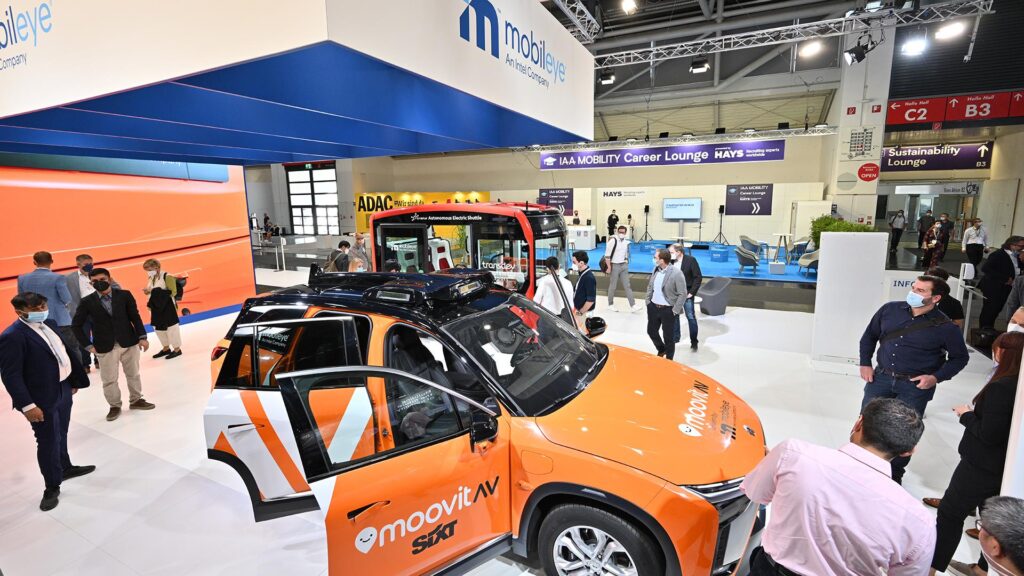ASIA ELECTRONICS INDUSTRYYOUR WINDOW TO SMART MANUFACTURING
Intel Bets Big on Automotive Chip Market
Setting up a beach head in Europe to enter in automotive chip market
Europe is one of the world’s two largest manufacturing hubs for automobiles. Yet, the continent has been losing its advantage as a major global chip supplier during the past two decades, as semiconductor chips are increasingly becoming crucial building block technologies to build cars.
To help address this unbalance, Intel Corp, plans to invest big in Europe not only to build a fleet of new mega-fabs, but also beef up its foundry service.
At a keynote speech session for IAA Mobility held in Munich, Intel CEO Pat Gelsinger said, “In 1990s, Europe represented 44% of worldwide semiconductor industry. Today, it just represents 9%, and the share is continuing to decline. At a time when every aspect of digital future is all running on semiconductors, it is oner verge of losing control in one of the most important technologies for economy and national security of Europe as well. With Europe, we will share the goal to reverse the decline to represent 20% of global chip supply by 2030. We want to do our part to build back European semiconductor industry.”
On the way toward that long-term goal, Intel plans to build 8 new mega fabs in Europe over the next 19 years through 2030, investing 80 billion euros-10 billion euros for each fab.
Of the planned 8, two new fabs will be built immediately after their locations will have been announced before the end of 2021.
8 New Mega Fabs

For the short-term, Intel plans to expand its chip manufacturing capacity at its Ireland, UK wafer fabrication facility to start its foundry contract chipmaking business – a move to ease down current supply shortages, especially for automotive chips.
The PC microprocessor titan will also launch its Foundry Service Accelerator program to help automotive chip designers to ramp up to more advanced chip node technology.
“New fabs will take 4-5 years to have chip production. It’s not option to solve today’s crisis. Instead, we should be migrating old designs to new more modern nodes and setting them up for increased supply and flexibility into the future,” said CEO Gelsinger.
In March, Intel announced that its fab facilities will open to fabless chip makers to launch its foundry business service in what’s called as “IDM 2.0” program.
Intel’s “Foundry Service Accelerator” program is to accelerate the migration to more advanced node technology like Intel’s 16nm process, allowing chip design companies in Europe to share Intel’s IP library to help fabricate automotive-grade chips and processing.
True enough, most of automotive chips have been fabricated with legacy processing technologies. The migration to advanced node technologies will help produce more chips out of silicon wafer, easing down supply shortages.
Computers on the Wheel

Intel’s bet on Europe is to establish a beachhead for its entry into automotive chip market, as more and more of chips are being used in cars.
According to CEO Gelsinger, semiconductor chips just represented 4% of total BOM, bill of materials for a premium vehicle in 2019, but the share will jump to 12% in 2025 and then leapfrog to 20% in 2030, – 5 times jump from that in 2019.
“Cars are turning into computers on the wheel. Semiconductor becomes central to every aspect of innovation and supply chain for cars. EV, or electric vehicles and AV, or autonomous vehicles EV are even driven by semiconductor chips, “ he stressed.
As with the case, TAM or total addressable market for automotive semiconductor chip would more than double to US$115 billion by 2030 from US$50 billion in 2021, accounting 11% of global semiconductor chip market.
Leading Intel’s foray into the automotive chips is its subsidiary Mobileye, a fabless chip maker for automotive-grade image sensor processor for ADAS and autonomous driving.
The chip maker has unveiled its first production AV, or autonomous vehicle Robot taxi at the trade show.
Comes equipped Mobileye Drive self-driving system under its service brand MoovitAV, the AV is a level-4 self-driving EV, or electric vehicle model in what Intel says is an important milestone on the way to driverless world. Mobileye plans to launch autonomous ride-hailing into operation with Munich, Germany-based Sixt SE starting in 2022, as the German government passed a law in early 2021 that enables commercial operation of driverless AV services.
Working together with 29 automakers across the world, Mobileye so far has supplied and implemented its chips in more than 88 million cars for collision detection and safety system




